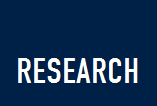Authorship in Scientific Publications
Authorship on a scientific paper carries both credit and responsibility. Fundamentally it is important that all contributors receive appropriate recognition while maintaining the integrity of the research process. The following principles should guide decisions regarding coauthorship:
- Substantial Contributions – Coauthors should have made significant intellectual or practical contributions to the research, such as study design, data collection, analysis, or interpretation. Merely providing funding, resources, or general supervision does not qualify for authorship.
- Critical Writing and Review – All coauthors should participate in drafting the manuscript or critically revising it for important intellectual content. Passive approval or minor edits are insufficient grounds for authorship.
- Avoidance of Gift or Ghost Authorship –
- Gift authorship (listing an individual who made little or no contribution) is unethical and can misrepresent contributions.
- Ghost authorship (excluding individuals who made significant contributions) violates principles of fairness and accountability.
- Acknowledgment of Other Contributions – Individuals who contributed to the research but do not meet the criteria for authorship should be recognized in the acknowledgments section.
When considering coauthorship you should remember that all authors share collective responsibility for the integrity and accuracy of the work, and they should be able to defend the findings if questioned.
RGG 2025
|










